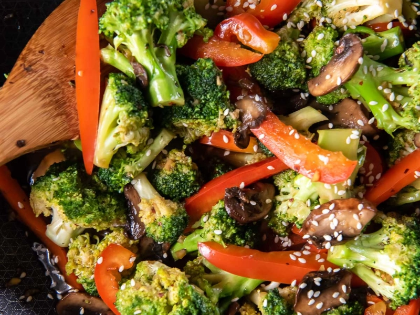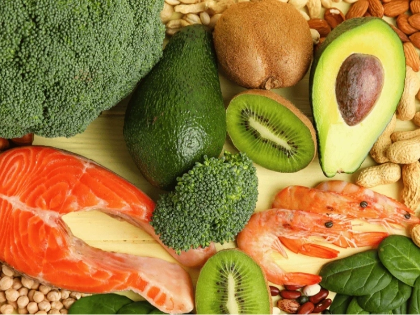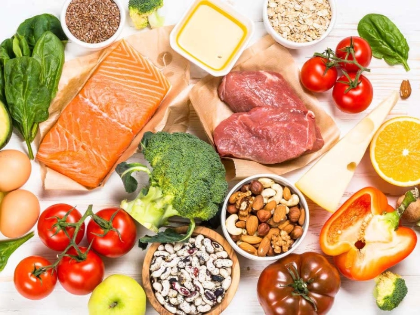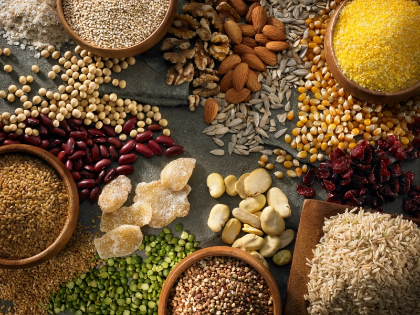The Importance of Vitamin C in Protein Metabolism
1. Understanding Vitamin C

2. The Role of Vitamin C in Collagen Synthesis
 One of the main roles of vitamin C in protein metabolism is its participation in collagen synthesis। A structural protein, collagen gives connective tissues, skin, and bones strength and elasticity. Essential for maintaining the collagen structure, amino acids like vitamin C cofactor for enzymes needed for the hydroxylation of proline and lysine. Adequate vitamin C is necessary for the synthesis of collagen, which weakens connective tissues and causes possible problems like scurvy, marked by skin problems and joint pain.
One of the main roles of vitamin C in protein metabolism is its participation in collagen synthesis। A structural protein, collagen gives connective tissues, skin, and bones strength and elasticity. Essential for maintaining the collagen structure, amino acids like vitamin C cofactor for enzymes needed for the hydroxylation of proline and lysine. Adequate vitamin C is necessary for the synthesis of collagen, which weakens connective tissues and causes possible problems like scurvy, marked by skin problems and joint pain.
3. Enhancing Amino Acid Absorption
 Additionally helping some amino acids—especially those sourced from dietary protein sources—to be more absorbed is vitamin C. Vitamin C guarantees that the body may efficiently use these amino acids for several purposes, including muscle repair and development by raising their bioavailability. For those who engage in physical exercise or strength training especially, their bodies need enough amino acids to heal and create muscular tissue.
Additionally helping some amino acids—especially those sourced from dietary protein sources—to be more absorbed is vitamin C. Vitamin C guarantees that the body may efficiently use these amino acids for several purposes, including muscle repair and development by raising their bioavailability. For those who engage in physical exercise or strength training especially, their bodies need enough amino acids to heal and create muscular tissue.
4. Antioxidant Protection During Protein Metabolism
 Reactive oxygen species (ROS) can arise as byproducts of protein breakdown and use during protein metabolism. Oxidative stress brought on by these ROS can compromise metabolic activities and harm cells. Strong antioxidant qualities of vitamin C serve to neutralize these damaging free radicals, so shielding cells from oxidative damage. Maintaining ideal metabolic activity and general health depends on this protective role, particularly in those who consume a lot of proteins or those who engage in intensive physical exercise.
Reactive oxygen species (ROS) can arise as byproducts of protein breakdown and use during protein metabolism. Oxidative stress brought on by these ROS can compromise metabolic activities and harm cells. Strong antioxidant qualities of vitamin C serve to neutralize these damaging free radicals, so shielding cells from oxidative damage. Maintaining ideal metabolic activity and general health depends on this protective role, particularly in those who consume a lot of proteins or those who engage in intensive physical exercise.
5. Supporting Immune Function and Protein Utilization
The immune system is well-known to be supported by vitamin C. Since infections and diseases can raise the body's protein demand, ideal protein metabolism depends on a strong immune response. The body may use amino acids from muscle tissue for immunological function when the immune system is damaged, therefore causing muscle loss and poor recovery. Ensuring sufficient vitamin C levels helps people to boost their immune system, therefore preserving muscle mass and enabling improved use of dietary proteins.
6. Dietary Sources of Vitamin C
Your diet must include enough vitamin C if you want to assist protein metabolism. Rich in vitamin C are strawberries, kiwi, bell peppers, broccoli, and citrus fruits including oranges and grapefruits. Including these foods in your daily diet will allow you to guarantee that you get enough vitamin C. Supplements are also available for those who might find it difficult to get enough vitamin C from diet alone; nonetheless, it is always advisable to see a healthcare practitioner before beginning any new supplement program.
7. The Impact of Deficiency on Protein Metabolism
Protein metabolism can be seriously altered by a vitamin C shortfall. The body may struggle to build collagen properly without enough levels of this vital nutrient, which would result in weaker connective tissues and slowed recovery. Low vitamin C levels also could cause decreased amino acid absorption, hence limiting protein use. This emphasizes the need of keeping enough vitamin C levels for best protein metabolism since it can lead to muscle weakening, slower healing from accidents, and a higher risk of infections.
8. Summary of Vitamin C's Role in Protein Metabolism
All things considered, vitamin C is an essential vitamin that functions in several ways related to protein metabolism. From its participation in collagen formation to improved amino acid absorption and antioxidant protection, vitamin C is crucial for preserving normal metabolic processes. A balanced diet helps to provide a sufficient consumption of this vitamin, so supporting not just protein metabolism but also general health and well-being. Understanding the need of vitamin C helps people to choose foods that maximize protein usage and improve their physical performance.










